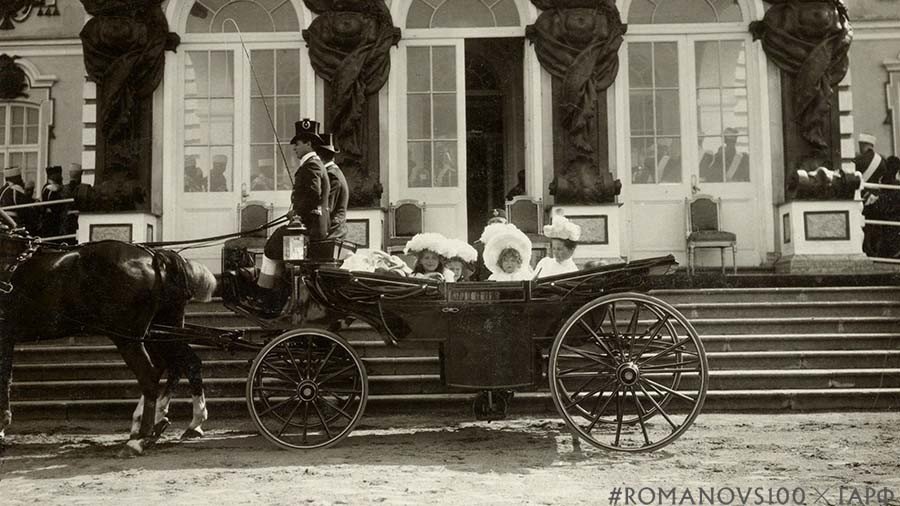‘Many people failed them!’ Helen Rappaport talks #Romanovs100 and the race to save Imperial Family

July 17, 2018 marked 100 years since the Russian Royal Family was executed by Bolsheviks. #Romanovs100 spoke to historian Helen Rappaport about whether the tragic events of those days have been acknowledged in Russia and abroad.
With her latest book, The Race to Save the Romanovs: The Truth Behind the Secret Plans to Rescue Russia's Imperial Family, published late June 2018 in time for the grim centenary of the family’s execution, Helen is extremely busy with interviews and panel appearances. Despite her hectic schedule, we manage to carve out time for a brief interview to mark the end of #Romanovs100 – a project Helen also contributed to.
On our last night at Governor’s House in Tobolsk, we sat with the entourage for a farewell meal of borsch, & chicken with rice for lunch & veal with garnish & macaroni for dinner, washed down with last 2 bottles of wine that we had managed to keep hidden from guards #Romanovs100pic.twitter.com/7UOzEWJ5Zz
— The Romanov Sisters (@OTMA_1917) May 19, 2018
It’s mid-summer 2018, Russia is hosting the World Cup and England is playing: our interview is being postponed. It’s a brilliant reason though: Russia has just opened up to the World, tourists flocking in visa-free, broadcasting their friendly experience via social media. Things couldn’t be more different from 100 years ago…
On the evening of July 17, 1918, Nicholas II, his wife Alexandra, their five children and staff (11 people in total) were brutally murdered by the Bolsheviks in Ekaterinburg. At the time, civil war was raging and there was still a power struggle between Monarchists and Socialists – a war that resulted in 70 years of communism for what had been the Russian Empire.
We ask Helen about whether she thinks there has been a shift in the relationship to what happened with Russia 100 years ago or if people were still very much in the dark about the cost of the regime change.
“I am afraid I can’t really answer this as I have not spent enough time in Russia and haven’t been there recently, so I have no way of gauging how Russian people feel at this present time.” A thorough researcher, Helen Rappaport is being very honest and careful with her words.
“But I can tell from the extent to which Russian Orthodoxy is resurgent, and with it interest in and veneration for the Romanovs, that many feel that the revolution was a crime and that the murder of their Imperial Family is something for which they now need to atone and ask for forgiveness. I think we will learn how significant this part of Russia’s history has become when we see how many pilgrims arrive in Ekaterinburg for the anniversary on 16/17 July, and also whether [President Vladimir] Putin and any members of the government turn up,” Rappaport continues.
Compare! obviously greater poverty in the Repin, but Mother Russia on the move like I haven't seen before. pic.twitter.com/eriGjckoms
— Helen Rappaport (@HelenRappaport) July 20, 2018
An estimated 100,000 pilgrims arrived in Ekaterinburg to commemorate the date and honor the canonized Romanov family. Three of Helen’s books about the Romanov family were translated into Russian and are finding success across Russia (including in Ekaterinburg) – so it seems there is interest. The Romanovs have been a research subject for Rappaport for more than a decade now, so this centenary was deeply meaningful.
I am over the moon to see Russian edition of all 3 of my books on sale in Ekaterinburg. My thanks to dearest Herbert Seevinck @PFDAgents pic.twitter.com/XshRyttaAL
— Helen Rappaport (@HelenRappaport) July 16, 2018
“It means a great deal to me for it marks the culmination of my 10 years working on the Romanov story, with the publication of my third book about them, The Race to Save the Romanovs. This book has also just been published in Russia and I am so proud of that. The anniversary is, I feel, a profound and important moment for the Russian people. For Russian Orthodox believers it is a time of remembrance, of asking for forgiveness and reconciliation with the past. I think the Russian people need very badly for there to be closure on this story. But that will only come when the Russian Orthodox Church finally and officially sanctions the remains and confirms all the DNA tests. And we are still waiting!!!” she says.
READ MORE: #Romanovs100 ends with VR animated music video ‘Lullaby’ about Tsarevich's dream (VIDEO)
Much about what had happened to Russia’s last reigning monarchs remains a mystery. Nicholas II was King George V’s first cousin, while his wife Alexandra Feodorovna (Alix of Hesse) was Queen Victoria’s granddaughter. Questions constantly arise about why European monarchies were reluctant to lend a helping hand, given they were all relatives. This is where one might be reminded that, when the First World War started, it was also between cousins: Kaiser Wilhelm was Nicholas’ and George’s cousin too. Nonetheless we asked Helen about the issue.
“I think people in Europe do, however, need to let go of the idea that the failure to save the family was all down to King George V. Many people failed them. He was not alone in losing his nerve and worrying about the political consequences. It was a very difficult situation and it is time that there was an acknowledgement of a collective failure to do enough to help them,” she says.
This whole subject is the story of Helen Rappaport’s latest book: The Race to Save the Romanovs. Her previous publication focused on the Romanov girls, the four sisters hiding behind an acronym of their own creation: OTMA. For #Romanovs100, Helen ran a Twitter account voicing the letters and diaries of Olga, Tatiana, Maria and Anastasia.
We are so grateful for a chance to walk outside with our dogs Joy, Jimmy and Ortipo in the sun and breathe the summer air. The scent of Ekaterinburg’s parks and gardens is so tantalisingly close. If only we could see them! #Romanovs100pic.twitter.com/IxLi2UIcT5
— The Romanov Sisters (@OTMA_1917) July 3, 2018
“I have really enjoyed working with the RT team – some of whom I had the pleasure of meeting in London recently. Last year I contributed to the #1917LIVE project and so I was delighted to be asked to be part of the #Romanovs100 one, for which I wrote the tweets. The project has given me a unique opportunity to see and enjoy the wonderful images released by GARF, which are simply outstanding and a unique record of Romanov family life. It has also been wonderful to work with the excellent RT team and share in a collective passion for the story. I feel that I have made my own special contribution to the Romanovs story and it is my way of honoring them and paying my respects in their centenary year,” she said.
Helen concluded her interview by adding that although she will probably take some time off the subject now, she “would always want to return to Russian history at some point. It is simply a matter of finding the right subject, and I haven’t really found the right one yet.”
#Romanovs100 ran for 100 days across four social media platforms, distributing some 4,000 photos from the Royal Family’s private archive. Coming to a halt on the anniversary of the execution, the project lives on with future plans to release an original soundtrack in the fall and more.














